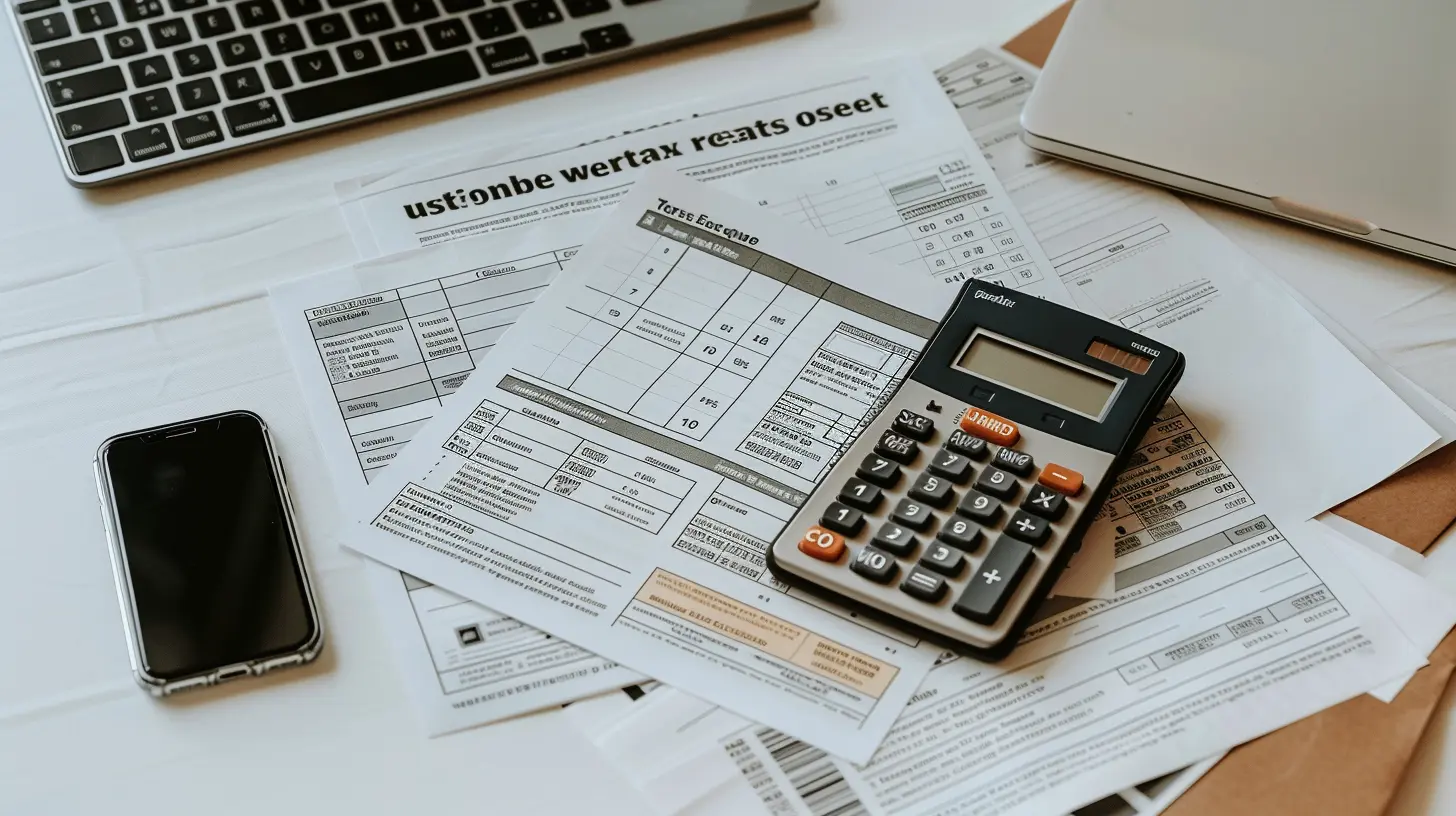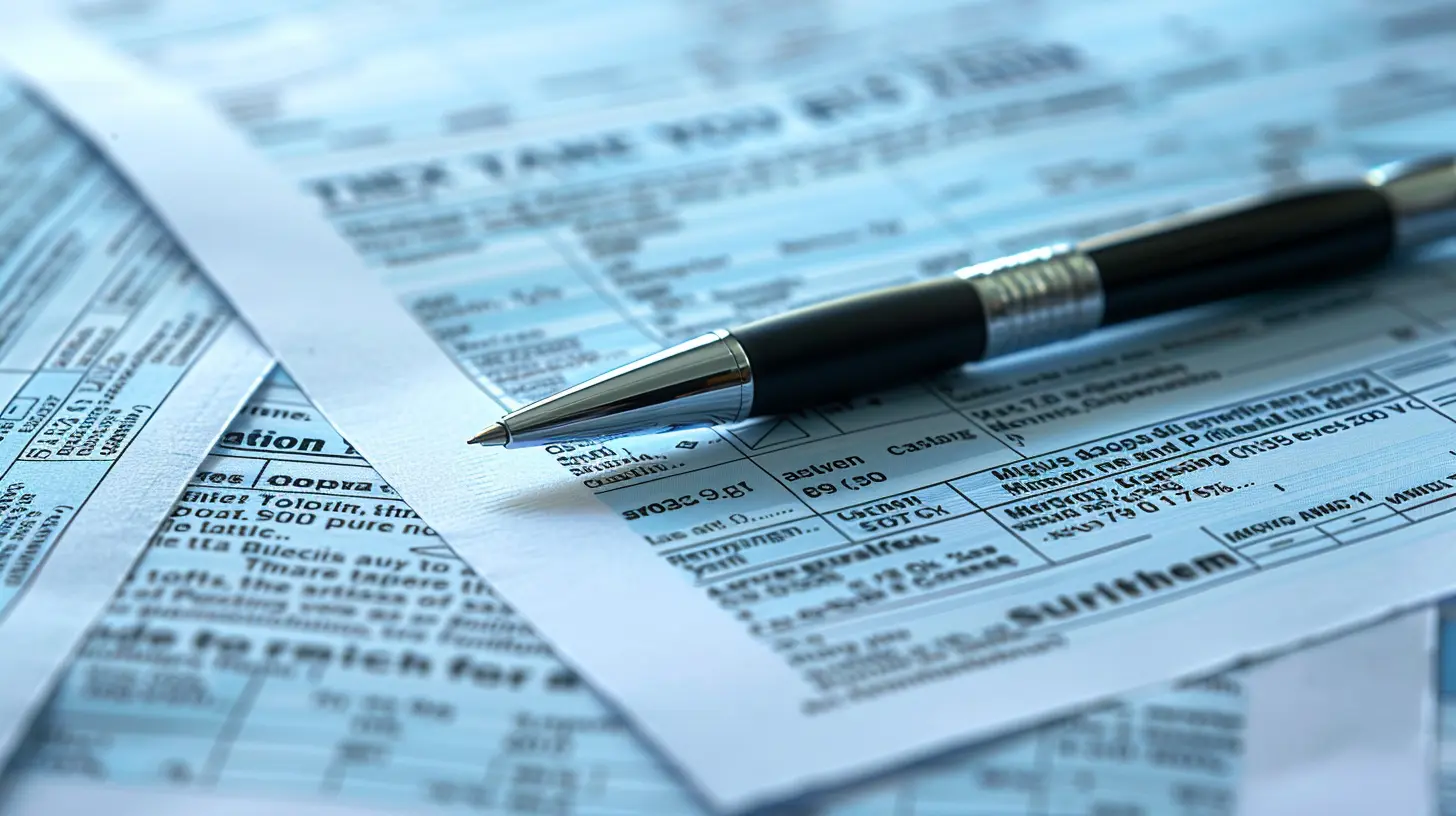Understanding Your Tax Refund: Breaking Down the Numbers
16 April 2025
Tax season can feel like a rollercoaster—stressful at first, but pretty exciting when you see that refund check coming your way. But have you ever wondered exactly how your tax refund is calculated? Is it really just "free money" from the government? (Spoiler alert: it's not.)
In this guide, we'll break down everything you need to know about your tax refund, from how it's determined to why you might get more (or less) than expected. By the end, you'll have a crystal-clear understanding of the numbers behind your tax refund—no accounting degree required! 
What Exactly Is a Tax Refund?
A tax refund is essentially the government giving back the extra money you paid in taxes throughout the year. If your employer withheld more money from your paycheck than you actually owed in taxes, you'll get that excess amount back in the form of a refund.Think of it like overpaying for something at a store. If you give the cashier $50 for an item that costs $40, you expect to get $10 back. Your tax refund works the same way.
But here's the kicker: A big refund isn't necessarily a good thing. It means you've been giving Uncle Sam an interest-free loan all year long. That money could have been in your pocket, working for you instead! 
How Is Your Tax Refund Calculated?
The IRS determines your tax refund based on a few key factors:1. Total Income Earned
Your total taxable income includes all the money you made throughout the year, including wages, freelance work, side hustles, and even investment earnings.2. Taxable Income After Deductions
Not all of your income is taxable. After reporting what you earned, you get to subtract deductions—like the standard deduction or itemized deductions—to lower your taxable income.3. Tax Credits vs. Tax Deductions
- Tax Deductions reduce the amount of income that gets taxed.- Tax Credits are even better because they reduce the actual amount of taxes you owe, dollar-for-dollar.
For example, if you owe $1,500 in taxes but qualify for a $1,000 tax credit, you'll only owe $500.
4. Taxes Withheld From Your Paycheck
Throughout the year, your employer withholds a portion of your paycheck for taxes. If they withheld too much, you’ll get a refund. If they didn’t withhold enough, you'll owe money to the IRS instead.
Why Do Some People Get Bigger Refunds Than Others?
You may have noticed that some people get thousands back in refunds, while others barely see anything—or worse, owe money to the IRS. Here’s why:1. Over-Withholding on Paychecks
If too much was taken out of your paycheck throughout the year, you'll be getting a big refund. This usually happens when employees claim too few allowances on their W-4 form.2. Qualifying for Tax Credits
Certain tax credits can significantly boost your refund. Some of the most impactful ones include:- Earned Income Tax Credit (EITC) – A major benefit for low-to-moderate-income earners.
- Child Tax Credit – If you have kids, this credit can add thousands to your refund.
- Education Credits – Students (or their parents) can claim credits like the American Opportunity Credit.
3. Self-Employed vs. Salaried Workers
Freelancers and self-employed individuals often owe taxes instead of getting refunds because they don’t have an employer withholding taxes from their income. If you’re self-employed and don’t make estimated tax payments, you could end up with a hefty tax bill.4. Adjustments for Life Events
Major life changes—such as getting married, having a child, buying a house, or starting a new job—can affect your tax situation and, ultimately, your refund.
Common Tax Refund Myths (Debunked!)
There’s a lot of confusion surrounding tax refunds, so let’s set the record straight.Myth #1: Your Tax Refund Is "Bonus Money"
While it may feel like found money, your refund is actually your own money being returned to you. It’s not a gift from the government.Myth #2: You Should Aim for the Largest Refund Possible
It might feel nice to get a big refund check, but in reality, all that means is that the government has been holding your money hostage all year without paying you interest.Instead, adjust your withholdings so you keep more money in your paycheck each month. Just be careful not to underpay—you don’t want to end up owing taxes either!
Myth #3: Filing Early Equals a Bigger Refund
Filing sooner may get you your refund faster, but the amount you get won’t change. Your refund is based on how much you paid in taxes, not when you filed your return.What Happens If You Owe Taxes Instead of Getting a Refund?
Owing taxes can be a shock, especially if you were expecting a refund. If you find yourself in this situation:- Double-check your return – Mistakes on your tax return can lead to unexpected tax bills.
- Set up a payment plan – The IRS offers installment plans if you can’t pay the full amount right away.
- Adjust your withholdings – Fill out a new W-4 form with your employer to avoid owing taxes next year.
Learning why you owed taxes can help you avoid the same issue in the future.
Tips to Maximize Your Tax Refund
If you're looking to get the biggest (legitimate) refund, here are some ways to ensure you’re not leaving money on the table:1. Claim All Deductions and Credits
Make sure you're taking advantage of any credits or deductions you qualify for. Even small ones can add up!2. Contribute to Retirement Accounts
Contributions to traditional IRAs or 401(k) plans may lower your taxable income and help you save on taxes.3. Consider Itemizing If It Benefits You
While most taxpayers opt for the standard deduction, itemizing can lead to a bigger refund if you have significant deductible expenses, like mortgage interest or medical costs.4. Review Your Withholdings
If you always get a huge refund (or owe money), it’s time to adjust your tax withholdings. Use the IRS Tax Withholding Estimator to ensure you're paying the right amount throughout the year.5. File Your Taxes Early
Filing early doesn’t increase your refund, but it does help you get your money faster. Plus, it reduces the risk of tax fraud, where someone files a return in your name and claims your refund.Final Thoughts
Understanding your tax refund doesn’t have to feel like solving a complex math equation. It all comes down to how much you earned, how much was withheld, and what deductions and credits you qualify for.While it’s always exciting to get a refund, remember—it’s not “extra” money. It’s your own hard-earned cash being returned to you. So, why not take control of your taxes and make sure your money is working for you all year long?
Tax season doesn’t have to be stressful. With a little planning (and maybe a good tax pro in your corner), you can maximize your refund and keep more of your money where it belongs—right in your pocket!
all images in this post were generated using AI tools
Category:
Tax RefundAuthor:

Harlan Wallace
Discussion
rate this article
6 comments
Gabrielle Wallace
Great insights! Understanding the nuances of tax refunds is crucial. Your breakdown makes it easier for readers to navigate this often-confusing topic. Thank you for sharing!
May 1, 2025 at 8:17 PM

Harlan Wallace
Thank you! I'm glad you found the breakdown helpful. Understanding tax refunds can definitely simplify the process!
Fennec Morgan
Great insights! This article simplifies tax refund concepts beautifully, making it easier for readers to grasp their financial situation. Thank you!
April 30, 2025 at 7:33 PM

Harlan Wallace
Thank you for the kind words! I'm glad you found the article helpful in navigating tax refund concepts.
Lumen McEvoy
A clear breakdown of tax refunds empowers taxpayers to make informed financial decisions.
April 30, 2025 at 10:40 AM

Harlan Wallace
Thank you! I'm glad you found the breakdown helpful—empowering taxpayers is exactly the goal!
Lacey Kirk
Great article! Understanding the intricacies of your tax refund can empower you to make informed financial decisions. Breaking down the numbers demystifies the process and opens doors to smarter budgeting and savings. Keep up the fantastic work in simplifying finance for all!
April 24, 2025 at 2:53 AM

Harlan Wallace
Thank you for your kind words! I'm glad you found the article helpful in simplifying tax refunds and empowering better financial decisions.
Bear Sanchez
Great insights! Understanding tax refunds can be tricky, but your breakdown makes it much clearer. It's so important to know how these numbers affect our finances. Thank you!
April 21, 2025 at 4:40 AM

Harlan Wallace
Thank you for your kind words! I'm glad the breakdown helped clarify the topic for you. Understanding these numbers is crucial for smart financial planning!
Liora Wyatt
This article offers clear insights into tax refunds, explaining how they are calculated, common misconceptions, and tips for maximizing your return. Very informative!
April 20, 2025 at 8:21 PM

Harlan Wallace
Thank you for your feedback! I'm glad you found the article informative and helpful in understanding tax refunds.




